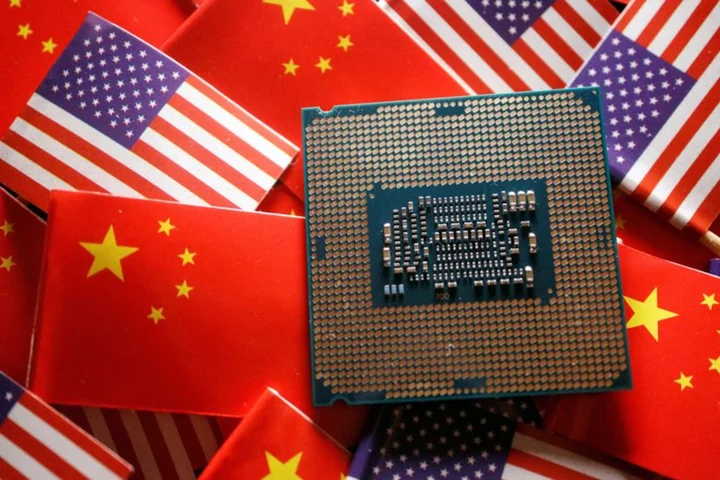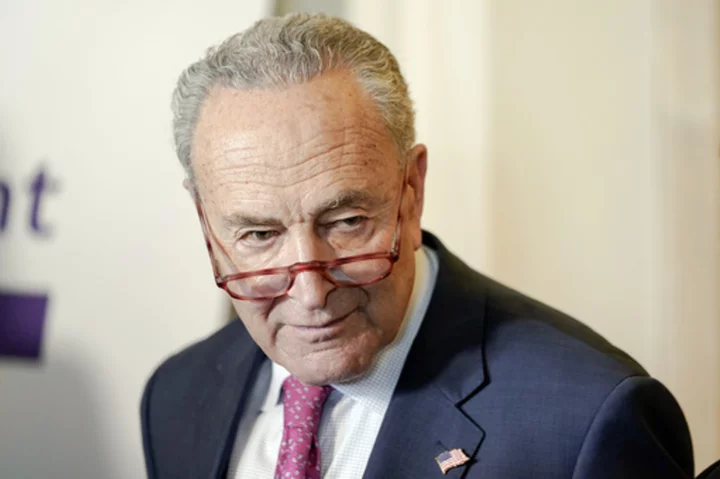By Paritosh Bansal
Fund managers are worried the Biden administration's move to restrict some outbound U.S. investment to China will further fuel anti-Beijing sentiment in Washington and prompt more limitations.
The executive order regulates U.S. investments in China in sensitive technologies. Investors, advisers and an administration official said it is tailored around national security and reflects months of consultations with industry and other stakeholders.
Even so, the order, while narrow in scope as expected, is unprecedented. It sets a new framework for outbound capital controls, making it easier to add areas to it in the future.
It is also spurring rhetoric in Washington. Some lawmakers are calling for more restrictions, with a congressional panel opening a probe into asset manager Blackrock and index provider MSCI over Chinese investments.
For U.S. investors trying to navigate the geopolitics, the noise in Washington is making it hard to determine what they should be doing in China. The executive order along with anti-China moves by lawmakers and agencies means the overall policy is unclear and riddled with landmines. China is making it harder for businesses, too. The uncertainty is likely to hit investment flows further and add to the urgency of contingency planning.
"The executive order in and of itself is establishing a framework for further action," said Anthony Rapa, co-chair of law firm Blank Rome's international trade practice group. "It will be very important to monitor how this executive order is being received in Congress."
An administration official said there were no immediate plans to add additional sectors or countries to the order.
A top executive at a major asset manager said the thinking in Washington is unresolved, torn between the urge to not do any business with China and the belief that trade is good.
This person, who requested anonymity because of the sensitivity of the situation, described the environment from business perspective as "a combination of confusion and fear," with policy debates expressed by "punching companies in the nose."
DIFFERENT ASKS
Take the case last week of letters excoriating Blackrock and MSCI from the Select Committee on the Chinese Communist Party.
The House committee, which does not write legislation but has subpoena power, takes issue with what are legal, passive investments in companies flagged across several government blacklists with different policy objectives. That's at odds with the Biden order, which contemplates excluding passive investments and focused only on national security.
A former diplomat and an investor said the exclusion of passive investments in the executive order was an industry ask.
The executive order affects venture funds and private equity firms that invest in Chinese companies in semiconductors and microelectronics, quantum information technologies and artificial intelligence.
That's narrow enough for many fund managers to keep operating in China without any impact, top executives from two major firms with China business said. But if restrictions were to broaden it would be a different story.
In its letter to Blackrock, the House committee, for example, mentioned 20 Chinese companies. Hundreds of millions of U.S. dollars are invested in just those stocks via index funds managed by Blackrock, Vanguard and other investment firms, data shows.
NAME AND SHAME
To some investors and advisers, China hawks in Congress are taking the approach of naming and shaming companies rather than engaging in substantive policy debate.
The House committee, for example, singled out Blackrock even though multiple other funds have exposure to China. Morningstar data on U.S. open-end funds' Chinese holdings shows Vanguard has the largest exposure with $79.3 billion against Blackrock's $52.7 billion.
The former diplomat and the fund executive said they felt Blackrock had been singled out because launching an investigation into the world's largest asset manager would garner more publicity for the committee's work.
A source close to the committee said they started with Blackrock after witness testimony and reports showed the asset manager had "deep ties" to China and advocated for investment there. The investigation is at the beginning stages, they said.
Blackrock has denied any wrongdoing, while MSCI said last week it was reviewing the committee's inquiry.
MORE RESTRICTIONS
Some of the investors said the administration's approach in framing the executive order had been more consultative. It might have also bought the industry more time and influence by releasing the order now and inviting public comments.
A similar measure, which includes more investment areas but doesn't call for prohibition, is moving through Congress. The former diplomat and one fund executive who monitors legislation said that might now stall.
But the push to broaden the restrictions is coming from multiple fronts. At least two other bills to curb investments have been introduced in Congress.
Policymakers have broader concerns that they might want to address. In the early iterations of the order, some administration officials wanted to include life sciences and biotechnology, the former diplomat said. Other issues such as human rights are also high on the agenda for lawmakers.
U.S. Representative Maxine Waters, Biden's fellow Democrat, said on Friday the executive order and rulemaking on outbound investment must be "broadened and strengthened."
"More needs to be done," she said.
(Reporting by Paritosh Bansal; Additional reporting by Andrea Shalal in Washington and Laura Matthews in New York; Editing by Anna Driver)









